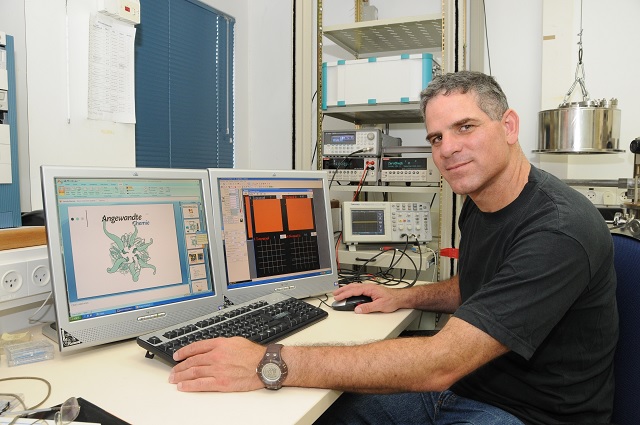 Paving the way for a new generation of DNA-based computer circuits: Prof. Danny Porath, the Etta and Paul Schankerman Professor in Molecular Biomedicine at the Hebrew University of Jerusalem. (Photo: Hebrew University)
Paving the way for a new generation of DNA-based computer circuits: Prof. Danny Porath, the Etta and Paul Schankerman Professor in Molecular Biomedicine at the Hebrew University of Jerusalem. (Photo: Hebrew University)
An international research group, led by Professor Danny Porath from the Hebrew University of Jerusalem, have collaborated in order to develop a major breakthrough in molecular electronics – DNA based programmable computer circuits.
The development of computers is one of the greatest technological achievements of the 20th century and has led to the rise of the Internet and huge advances in communication. The size of computers systems have reduced drastically since their invention.
Researchers have used microelectronics to reduce the size of the components inside computers. However, they have not been able to achieve a significant reduction in the spaces between transistors.
These transistors play an important role in computers. The miniaturisation of this space or distance between individual transistors has been very expensive and difficult to achieve so far.
Molecular electronics holds great promise for the miniaturization of electronic components. Researchers have not been able to successfully use molecules for the fabrication of complex miniature electrical circuits.
Though DNA molecules could be used in miniature circuits, by making them to self-assemble, researchers have not been able to successfully demonstrate reliable electrical current flow in DNA molecules until now.
This research paves the way for implementing DNA-based programmable circuits for molecular electronics, a new generation of computer circuits that can be more sophisticated, cheaper and simpler to make.
Prof. Danny Porath, Hebrew University of Jerusalem
Using long DNA molecules comprised of four DNA strands, the scienctists involved in this new research produced an electrical current which could be measured quantitatively and also reproduced. This advancement could help the further development of DNA-based electrical circuits.
The researchers have published this study, titled "Long-range charge transport in single G-quadruplex DNA molecules", in the scientific journal Nature Nanotechnology.